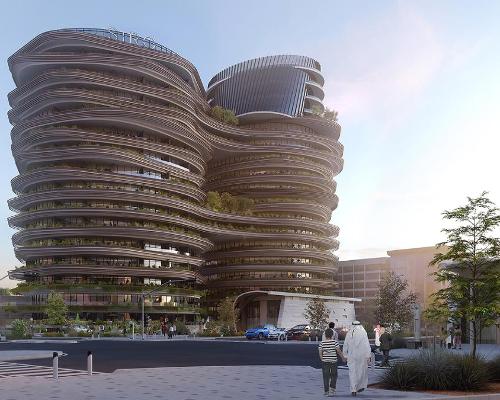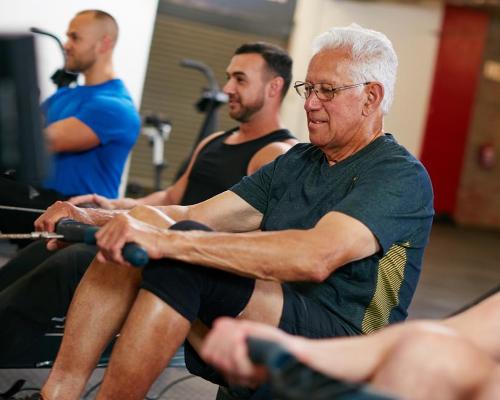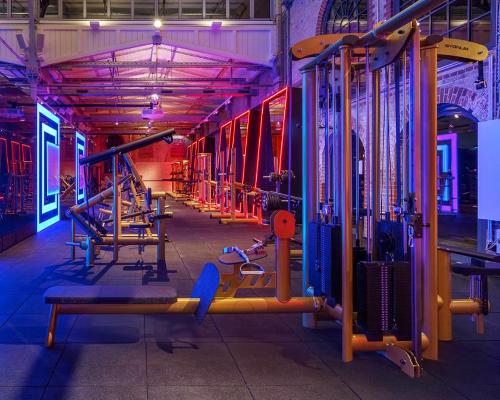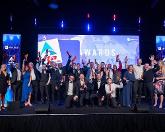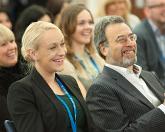see all jobs
Addressing social fallout at the heart of AAM's 2017 TrendsWatch report
Closing the empathy deficit, the next horizon of civil rights and the rise of the intelligent machines are all trends that will affect cultural institutions in the coming years, according to the 2017 edition of the Center for the Future of Museums’ (CFM) annual TrendsWatch report.
Written by Elizabeth Merritt, the report from the American Alliance of Museums (AAM) identifies the major trends that will shape the way museums worldwide will handle affairs, do business and engage visitors.
A Mile in My Shoes: closing the empathy deficit
The empathy deficit, something previously discussed by former US President Barack Obama, covers the inability to put oneself in someone else's shoes.
“Researchers across the globe are documenting a decline in this crucial capacity at a time when we dearly need to foster mutual understanding,” says the report. “The good news is that just as we can rehabilitate physical injuries, we can retrain our psyches to strengthen weak empathic skills. Museums’ inherent strengths position them to be effective ‘empathy engines’ helping people to understand the ‘other’ and reinforcing social bonds.”
The growing empathy deficit, which according to research has declined by nearly half (48 per cent) over the last four decades, has been tied to a decline in social trust and a rise in discrimination, bullying and hate crimes.
“These developments are of particular concern in a time when we are experiencing a global wave of forced migration that leaves many displaced people vulnerable to xenophobia and discrimination,” says the study.
“Museums should create environments that foster conversations between strangers and meaningful encounters between people of different backgrounds. Museums should also measure and value their ability to teach empathy and other emotional skills, in addition to facts and reasoning. This strength is particularly important in communities suffering from stress and violence, and for audiences that include people in positions of power – be it parents, politicians, teachers, or police – for whom empathy is a critical skill.”
Let Justice Roll Down: the next horizon of civil rights
According to AAM, justice is being re-examined with a critical eye toward how existing structures create or perpetuate inequality. In a museum setting, this means that museums have the opportunity to reflect on how assumptions about power, security, and order are embedded in their own operations, while also helping society to navigate “the next horizon of civil rights”.
“Museums’ communities are being buffeted by the economic, cultural, and political fallout from current inequities in the justice system," says the report. "Increasingly, museums are being called on to play a role in addressing these tensions through serving as venues for dialogue, as places of healing, or by acting as advocates for social justice. Museums can help society re-examine the history and current practice of justice in the US. They can create exhibits and programming that respond to current and local events and shape the discussion of how to move forward.”
As the museum sector continues in its efforts to diversify its workforce, the report adds that it must also consider the potential effects of excluding anyone with a criminal background. It argues that aside from disadvantaging a population that needs employment, the move also impedes progress towards racial diversity, given disproportionate statistics for people from non-white backgrounds with criminal convictions in the US.
The Rise of the Intelligent Machine
With computers and technologies becoming ever-more complex, artificial intelligence offers museums tools to manage data, as well as new tools in a creative capacity.
AI can benefit society in a number of ways, with education right at the top of the list. As referenced in TrendsWatch, the Defense Advanced Research Project Agency's Educational Dominance programme is already using AI-powered digital tutors to speed up training of Navy recruits. There are downsides however, with Oxford University projecting that AI will contribute to the loss of up to 47 percent of US jobs over the next 20 years, many of them being professional jobs typically requiring advanced degrees.
“As AI becomes more effective and affordable, it will become part of the standard toolkit of museums seeking to enhance their business practices,” says the report. “Rather than displacing staff, AI can give smaller museums that can’t afford dedicated specialists access to AI-powered legal services, marketing, communications, and data analytics. Even exploiting the potential of AI itself will not necessarily require AI-specific expertise, as we develop plug-in applications for the technology.”
Reshaping the World: migration, refugees, and forced displacement
“Mass migration, driven by conflict, oppression, political upheaval, climate change, environmental disasters, and economic distress has been described as the defining issue of this century,” says the report, adding that these events reshape the lives of people who are displaced, sparking both the best and the worst of human behaviour.
For museums, it is suggested that they can use their influence to build bridges between established residents and newcomers – to ease fears, build trust, and find common ground.
“Addressing migration gives older cultural museums a way to connect their mission to current events and new community members,” it says, while warning of a potential negative backlash from some parties and urging proper training to handle such a situation.
“Serving a community that includes recent migrants and refugees may require museums to adapt their hiring and training. Understanding the difficulties of conflict and conflict resolution can require a skill set unfamiliar within traditional museum professions. Museums may adapt by hiring people from nontraditional backgrounds, developing new training, and giving representatives of migrant communities meaningful roles in determining how the museum serves their needs. Museum staff may also need training to deal productively with anti-immigrant attitudes directed at the community, visitors, or the museum itself.”
The report suggests combating fear and prejudice by using storytelling to build levels of empathy, countering negative press with their collections, telling the story of migration and the resulting evolution of local communities. It also states that museums should help refugees find jobs, which has a twofold effect of meeting immediate practical needs, while also helping to integrate them into the local community.
Failing Toward Success: the ascendance of agile design
“Failure is a necessary design process”, suggests the paper, which argues that in a time of rapid social, technological, and economic change, organisations must try new things in order to succeed, and such innovation requires a tolerance for risk. With many museum business models experiencing significant disruptions, TrendsWatch suggests that museums must become comfortable with positive failure, meaning they need encouragement, tools, and positive feedback to buck the “traditional of perfectionism that has characterised the sector”.
“Museums, as a sector, share a culture of perfection that places large bets on getting a product – whether an exhibit, programme, or building – right the first time,” it says.
“This culture is often rooted in traditional, hierarchical management structures that evolved in a time that valued authority and control over collaboration and creativity. Museums that decide to move away from dysfunctional perfectionism have to work consciously to change an organisational culture that discourages risk taking. A culture of continuous improvement can’t simply be isolated in a new department or grafted onto traditional structures – it requires fundamental shifts in a museum’s ethos, including new forms of leadership and management.”
To read the full report click here.
More News
- News by sector (all)
- All news
- Fitness
- Personal trainer
- Sport
- Spa
- Swimming
- Hospitality
- Entertainment & Gaming
- Commercial Leisure
- Property
- Architecture
- Design
- Tourism
- Travel
- Attractions
- Theme & Water Parks
- Arts & Culture
- Heritage & Museums
- Parks & Countryside
- Sales & Marketing
- Public Sector
- Training
- People
- Executive
- Apprenticeships
- Suppliers










